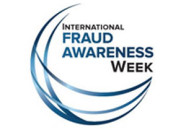Frauds and schemes will be with us forever and once we raise our awareness about how these snake-oil salesmen operate, we will be less likely to fall for the Bernie Madoff’s and Charles Ponzi’s. Here are 10 ways to reduce your vulnerability.
10. Be cautious with unsolicited offers. If you receive an unsolicited pitch to invest with a company, research that company’s financial information. Find out their current and past financial situations and be wary if you cannot find these documents.
9. Read your monthly bank statements. Know every purchase and credit to your accounts. Scammers can steal your information and set up charges you might mistake. Check for hidden “membership” fees or any other unapproved charges.
8. Give to recognized charities. When a disaster occurs, your instinct is to give to those who lost their homes, clothes, etc. Do your research and give to a recognizable charity or a credibly ranked one. You can find more donating tips by using a website like CharityNavigator.
7. Investing is taking a chance. There is no sure profit when investing. An investment opportunity with a low-risk, high-return investment can strike red flags! Take time to learn about the product and company beforehand. Also, prepare for a sales pitch. Watch for words like ‘guarantees’ and ‘promises’ with little ‘financial risks’.
6. Don’t deposit a check from, or wire money to, an unknown recipient. The law requires banks to have deposited checks available within days. However, to recover a fake check can take weeks. Someone who overpays using a check is likely connected with fraud.
5. Use strong passwords. Passwords should have eight or more characters. Use a combination of letters, symbols, and numbers that have no significance to you or records that lead back to your password.
4. Don’t reply to messages that ask for personal or financial information. These messages are likely to be in your inbox, but send via telephone or text message too. Do not click these links or return these calls, remember you can be a click away from a fraud.
3. Understand a website’s privacy policy. Be sure to check the URL for that site if they ask you to provide confidential or personal data. HTTPS with a lock symbol in the search bar is safer than HTTP (without the ‘s’).
2. Attachments. Be cautious when opening any attachments from unknown senders. The sender could be a fraud, a swindle, or a virus to your account.
1. Guaranteed returns might not be so promising. Every investment comes with a risk. The rate of return will reflect the level of risk involved in the transaction. The higher a rate of return is, the greater the risk will be of your investment.





